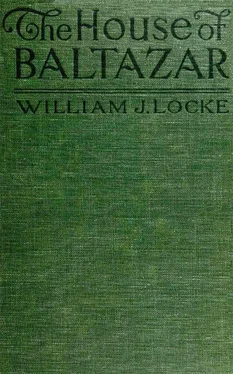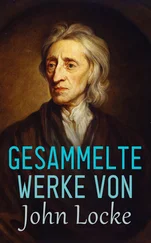“It may be, Quong Ho,” said he, “that it is built over with picture palaces and swarming with tango-dancers. Any conceivable happening to England during the last twenty years is possible. But we’ll go and see.”
“I am unacquainted, sir,” replied Quong Ho, “with the dancers you mention; but I have visited picture palaces during the fortnight we have spent in your wonderful country, and, rightly exercised, the cinematograph strikes me as being the most marvellous vehicle for the propaganda of civilization that the world has seen.”
“Quong Ho,” said Baltazar, “it is not in our contract to care one little tuppenny damn for the propaganda of civilization. You’re not going to waste your time at one of those futile and ill-conceived, although ingenious, entertainments for the next three years. If the particular region I have in view is not satisfactory, we shall find another.”
Presently he added, in a tone of compunction—he was dressing while Quong Ho packed:
“I’m sorry I’ve had to cut short the time I intended you to have in London. I badly wanted you to have some general idea of it.”
“Sir,” replied Quong Ho, “without wishing to boast, I have grasped London. I could find my way blindfolded from here to the Tower, the House of Parliaments, the North End Road, Fulham, and that imperishable objective record of your honourable nation’s history, the museum of Madame Tussaud.”
“All the points you have mentioned, Quong Ho,” said Baltazar, “are of undoubted value—except the North End Road, Fulham. What the devil could you find of interest in that drab region of nowhere?”
Quong Ho’s usually smiling and mobile face became an expressionless mask.
“It marked the end of my peregrination in that direction,” he replied.
“It strikes me,” said Baltazar, “that it’s time you peregrinated to a more God-swept and intellectual atmosphere.”
Three weeks afterwards they took up their residence at Spendale Farm.
BALTAZAR had lived on the moor in peace and comfort for nearly a year when he received his first unsolicited communication from the outside world, in the shape of a long, cheap envelope, headed “On His Majesty’s Service,” and containing Income Tax assessment forms. For a moment he wondered how the representatives of His Majesty had managed to ferret him out in his retreat.
“It’s a vile country,” said he to Quong Ho, who had handed him the letter on returning from his weekly visit to the town. “It’s a pettifogging, police-ridden land, where a man, if he so chooses, can’t bury himself decently. I’m sure the King is not aware of this unwarranted interference with the liberty of one of the most self-effacing of his subjects.”
“My mind was in half,” replied Quong Ho, “to destroy the missive which I conjectured would cause you annoyance.”
“It’s a good thing you didn’t. The King is an amiable gentleman, but the High Mandarins from whom this proceeds are not to be trifled with.” He glanced through the papers. “It is well,” said he, with a sigh of relief. “The High Mandarins around the Throne are as yet ignorant of my whereabouts; but if I refused to obey this invitation, they would soon learn it. It is a pestilential minor official in the vicinity who for the sake of money—it’s his disgusting mode of livelihood—has violated my solitude.”
“In the New China,” said Quong Ho, “we hope to do away with the bureaucracy, which is a parasite on civilization.”
“You won’t do it,” said Baltazar. “In the New Jerusalem—by which we mean the Kingdom of Heaven—there is a Recording Angel, and you may bet your boots he has got his staff of officials who write minutes and fill up forms all Eternity long.”
“Perfection,” remarked Quong Ho, “is to be found neither in this world nor the next, but only in that harmonious principle of the soul which is termed li in the Confucian philosophy.”
“Quong Ho,” said Baltazar in Chinese, “your wisdom befits rather the honourable white beard of the teacher than the smooth-shaven chin of the pupil of five-and-twenty.”
Quong Ho bowed respectfully at the compliment and withdrew.
“Confound the Income Tax!” said Baltazar, looking through the papers. He had completely forgotten his liability. The sudden reminder vexed him. Of course he must pay; but his income being exclusively derived from investments, all of which were taxed at the source before the dividend warrants were paid automatically into his account at his bankers’, why should he be worried? He resented the intrusion on his privacy.
A week later Quong Ho posted the form in the ironically provided, penny-saving official envelope, and Baltazar dismissed the incident from his mind.
When some time afterwards his assessment paper arrived, it caused him some astonishment. He cast his memory back twenty years. In 1896 the Income Tax, if he remembered rightly, was inconsiderable, some sixpence in the pound. Now it was half a crown. He filled up the form, an easy task, thinking less than ever of the social condition of Modern England; such high direct taxation could only mean the desperate financial straits of a decadent country. Well, as far as he was concerned, the loss of one-eighth of his income did not matter. The initial expenses of his installation at Spendale Farm over, he scarcely spent a third of it.
The next disturbing document that found its way to Spendale Farm contained a searching series of questions, headed “National Registration.”
“I am ceasing to regard England as a fit place to live in,” said he, with some petulance. “This is Mandarinism run riot.”
A few weeks afterwards he received a neat little card folded in two, on the outside of which was printed a vile semblance of the Royal Coat of Arms and “National Registration Act, 1915,” and inside a certificate of the Registration of (a) John Baltazar, (b) Philosophical Investigator—for as such had he irritably described himself—(c) of Spendale Farm, Water-End. There was a space for the signature of Holder, and below it in great capitals “God Save the King.” On the back were directions as to change of address.
“God knows what’s coming over the country,” said he. “It appears that a free-born Englishman has got to carry about his police papers, as people have to do in disgusting countries like Germany and Russia. What about you, Quong Ho? Have you got a pretty little document like this?”
“I am registered as an alien,” replied Quong Ho.
“It seems to me,” said Baltazar, “that when I used to gas to you about our free British institutions I was nothing but an ignorant liar.”
“By no means, sir,” replied Quong Ho politely. “The keynote of the modern world is change. What was true of material things yesterday is a lie to-day.”
“How did you discover that?”
“I assume the little town of Water-End to be but a microcosm of Great Britain.”
“Why,” laughed Baltazar, “what signs of change do you see there?”
Quong Ho remained for a moment silent, and his face assumed its Oriental impassivity. If he reported to his master the astounding events that were taking place, even at Water-End, whose quiet High Street was a-bustle with newly fledged soldiery from the moorland camp three miles on the further side, he would not only risk the dissolution of the establishment, but would be guilty of filial disobedience, which was impiety. And the European War, after all, how could it concern him, Li Quong Ho? Perhaps, too, his master, foreseeing the tempest, particularly desired to take shelter and hear nothing at all about it. He was fortunate enough, however, to find a perfectly true reply to Baltazar’s question. He smiled in some relief; for an intellectual Chinaman, trained in the lofty morality of the Chinese classics, does not willingly lie.
Читать дальше












